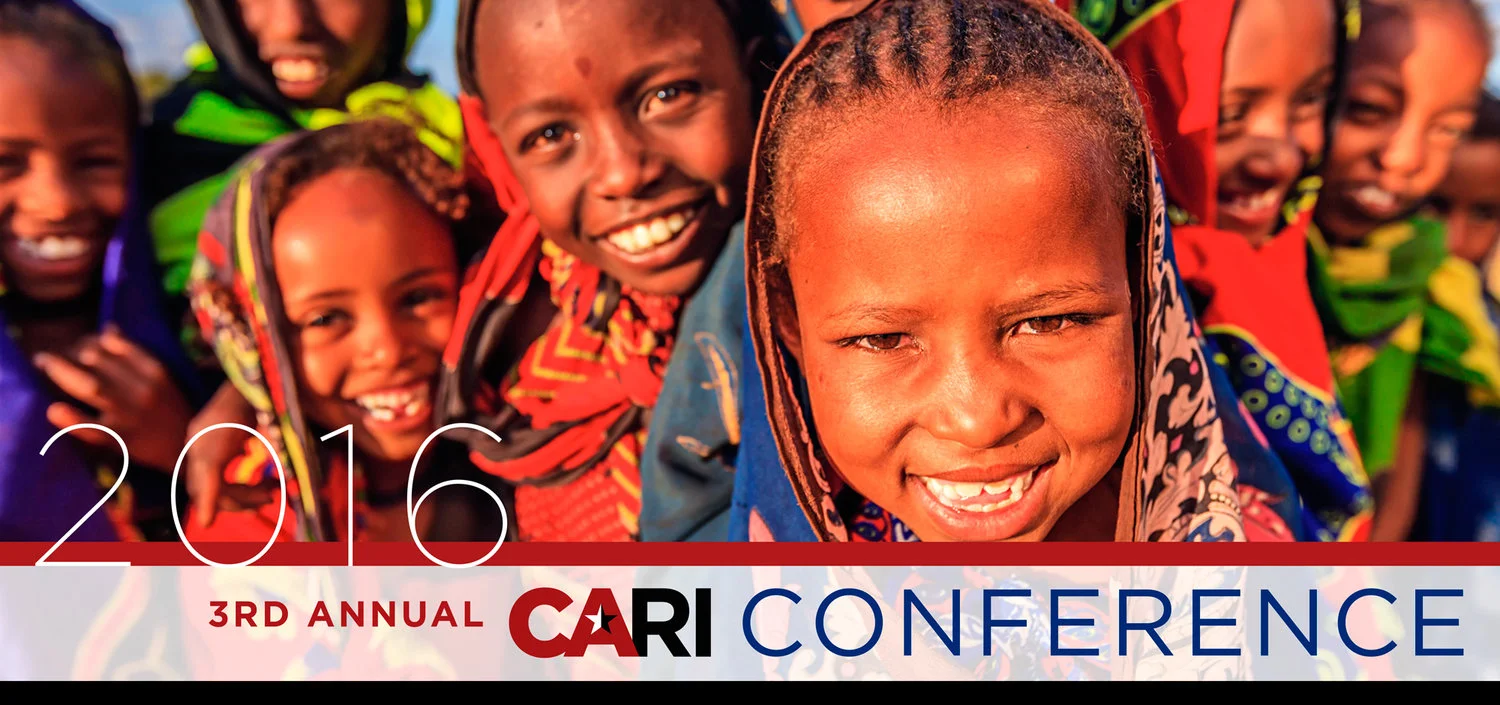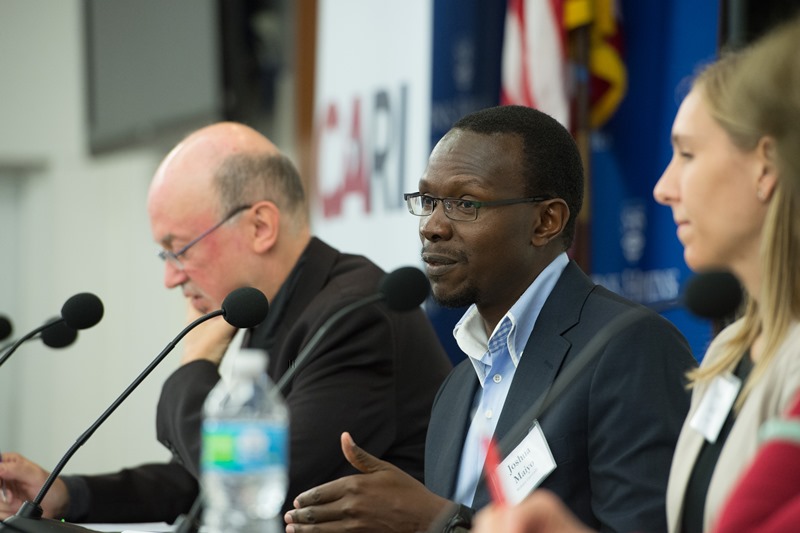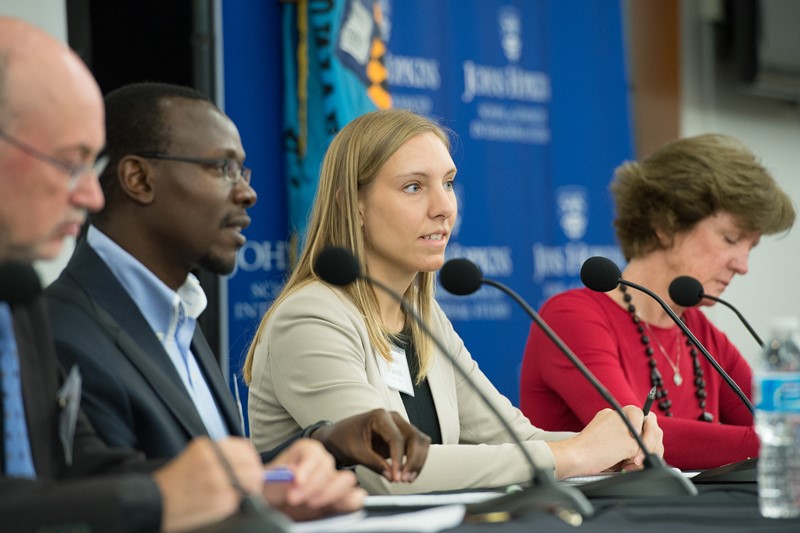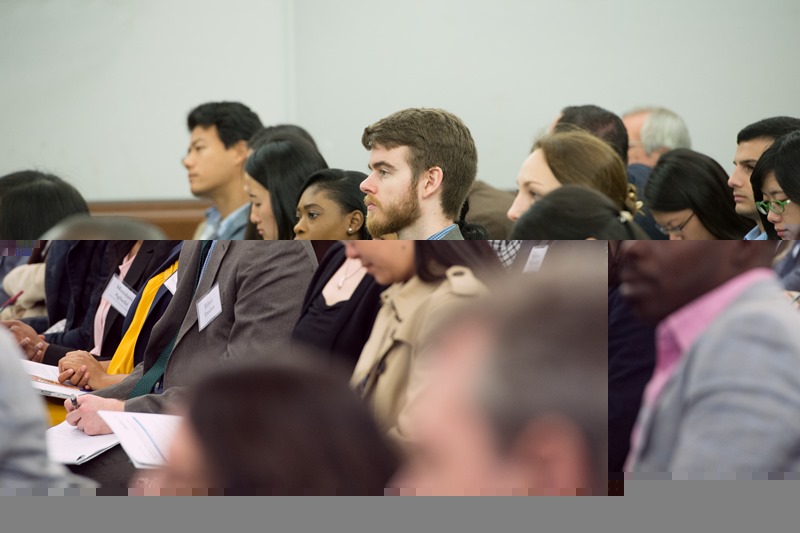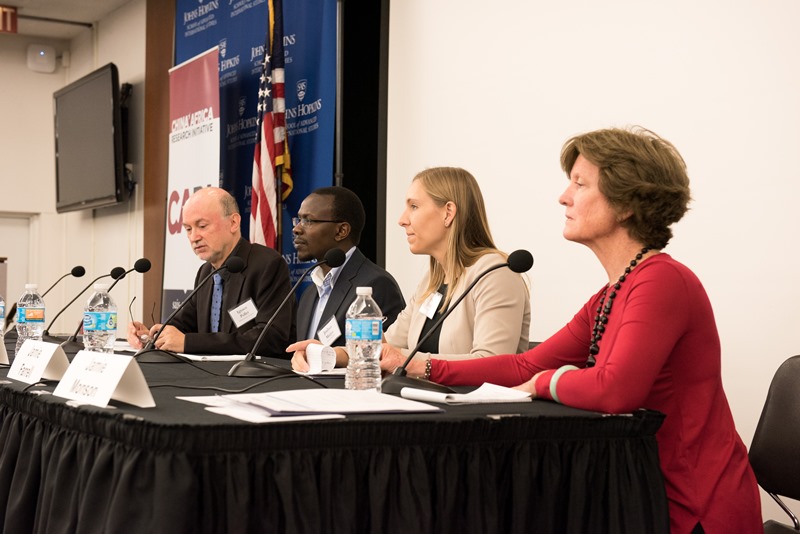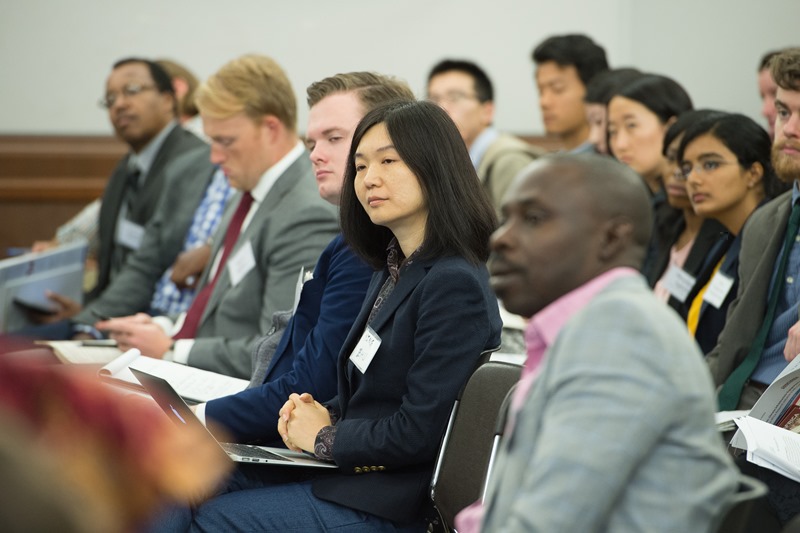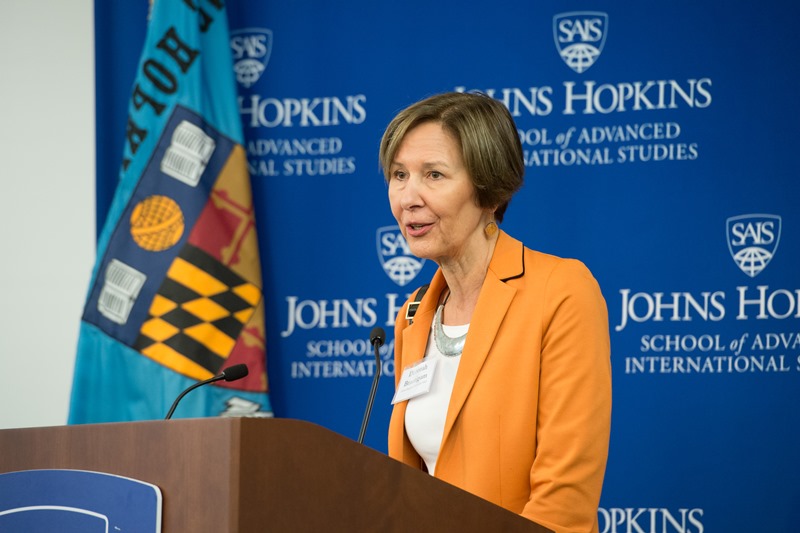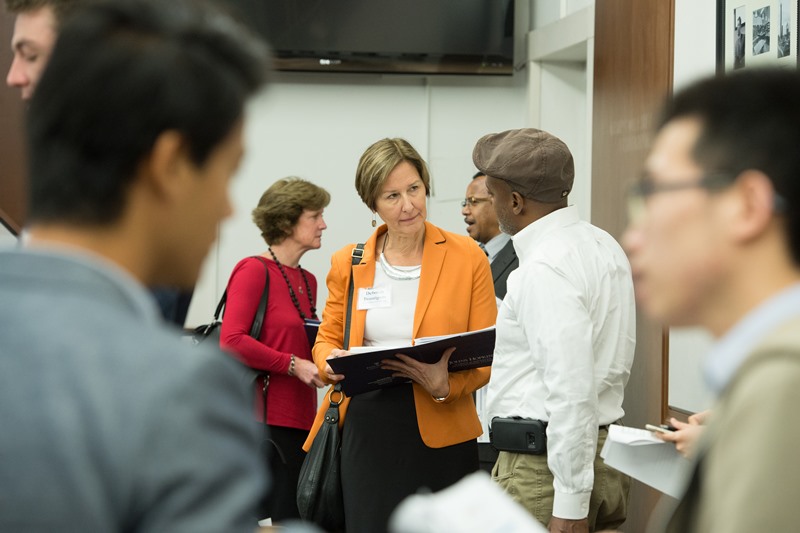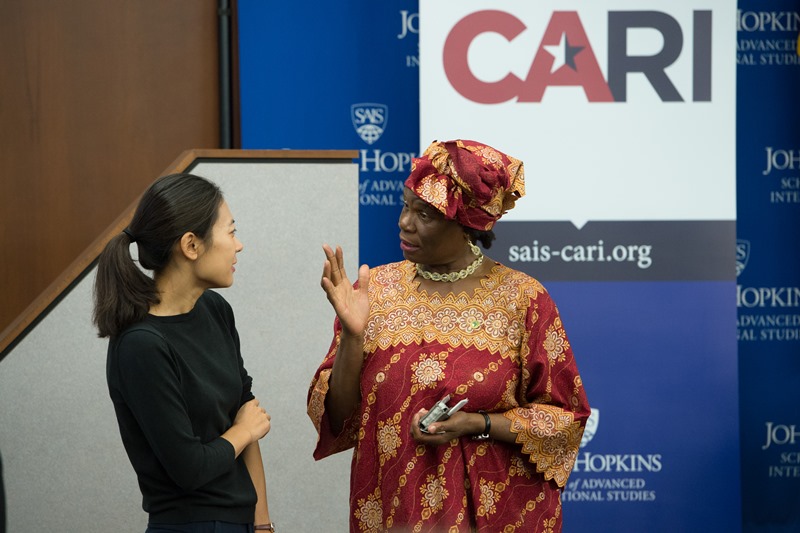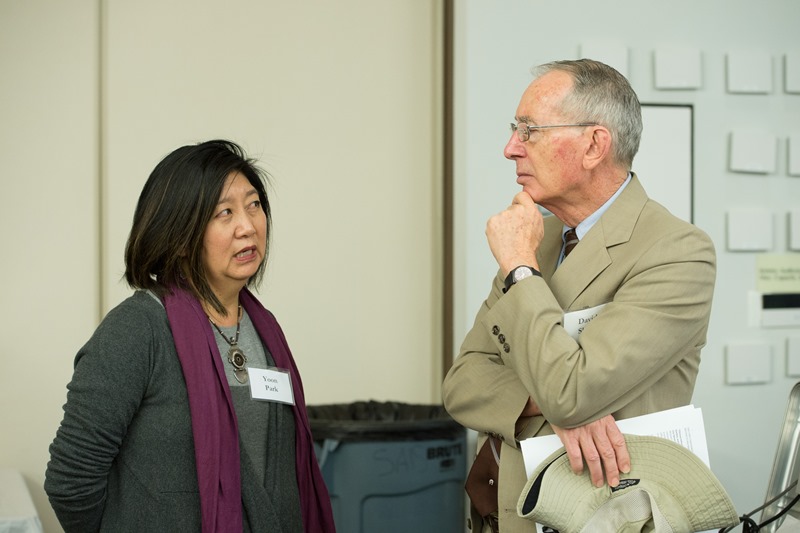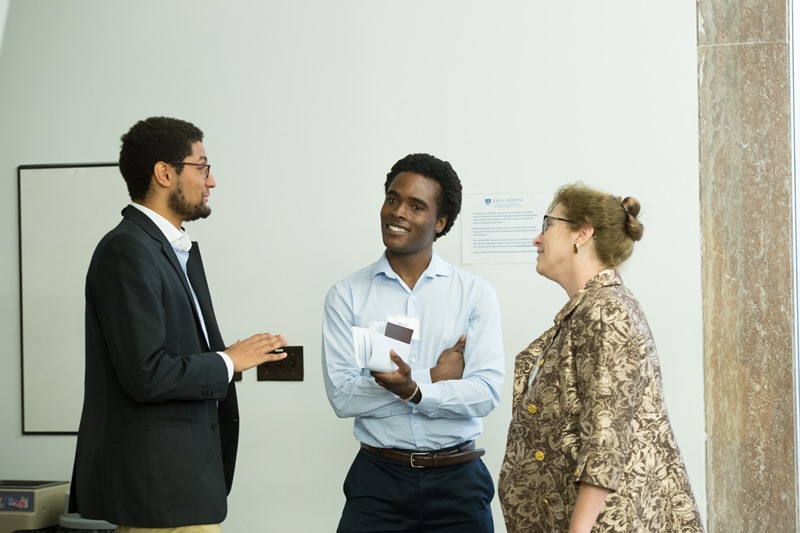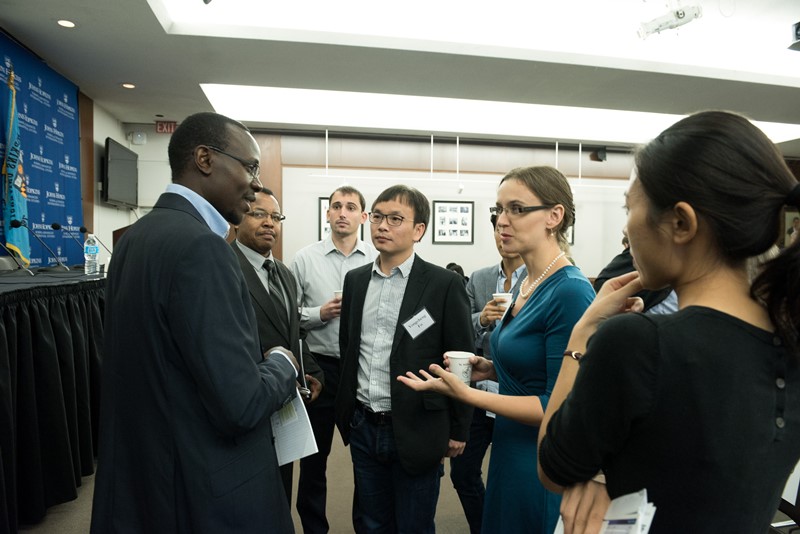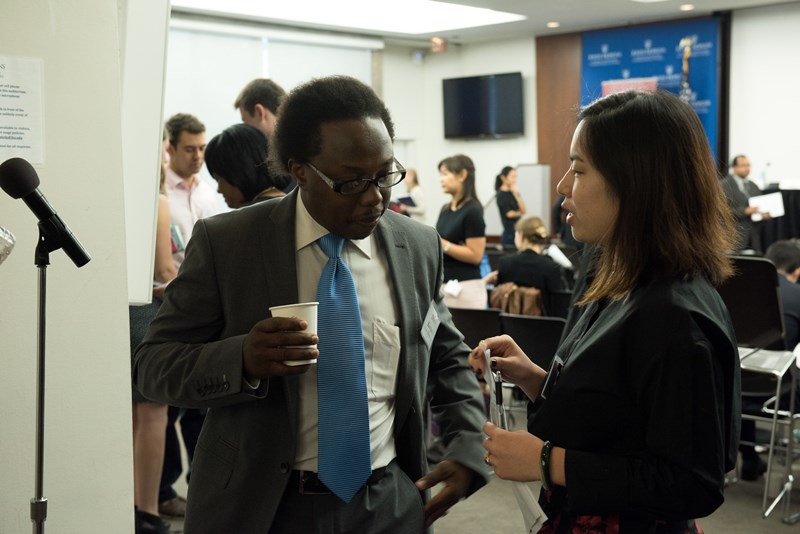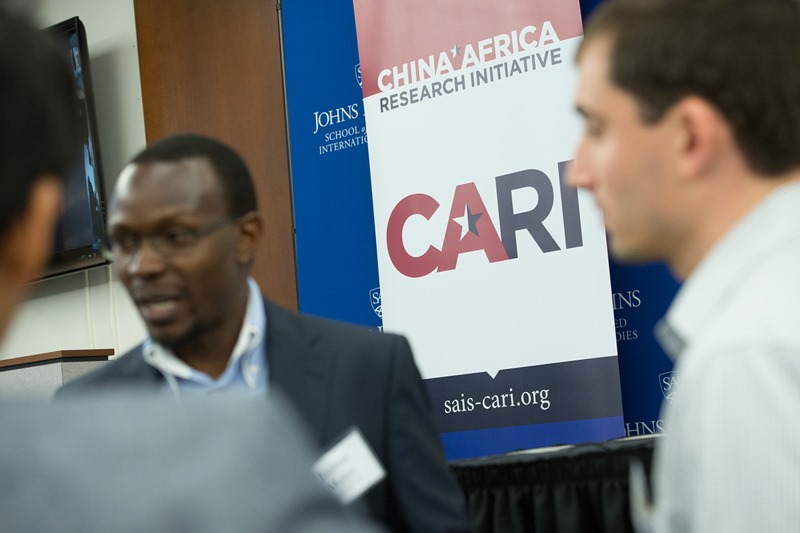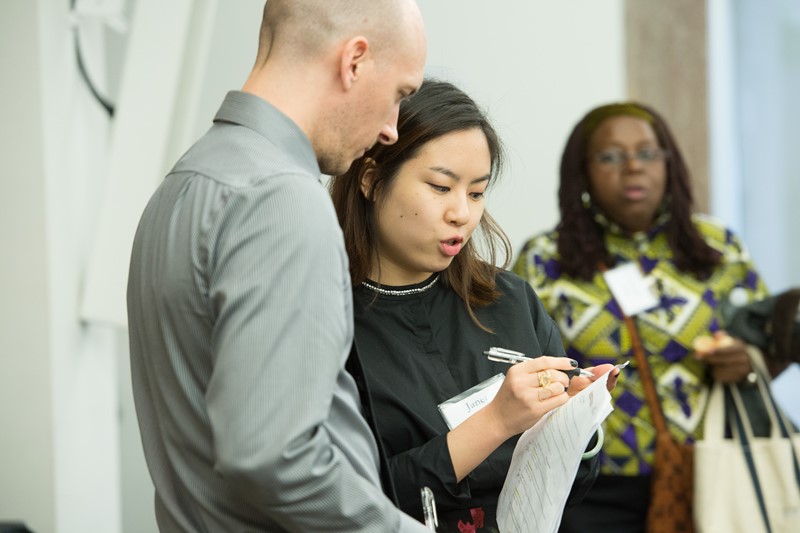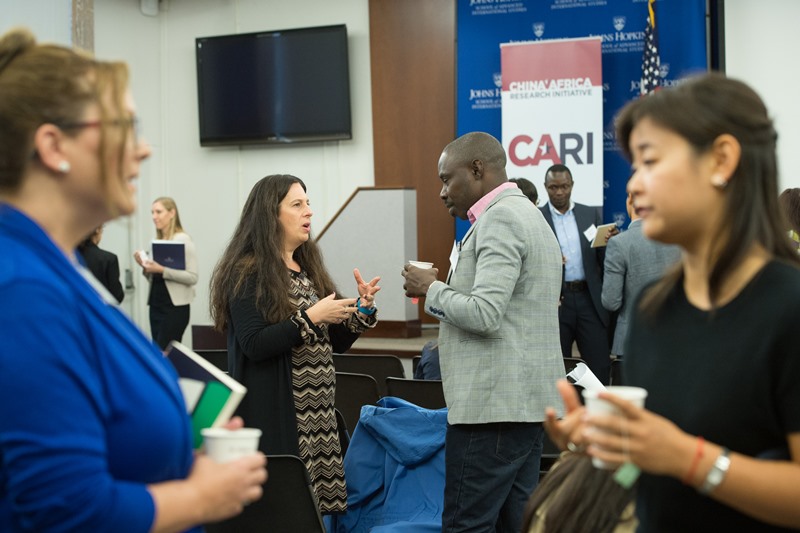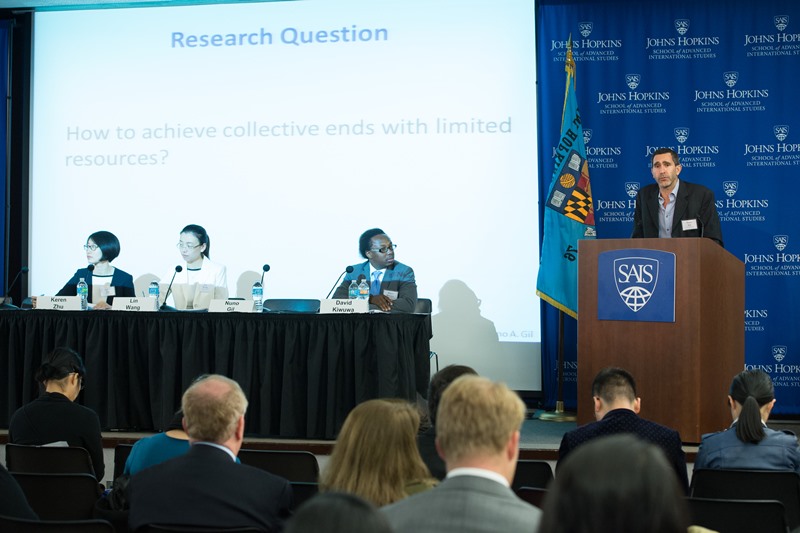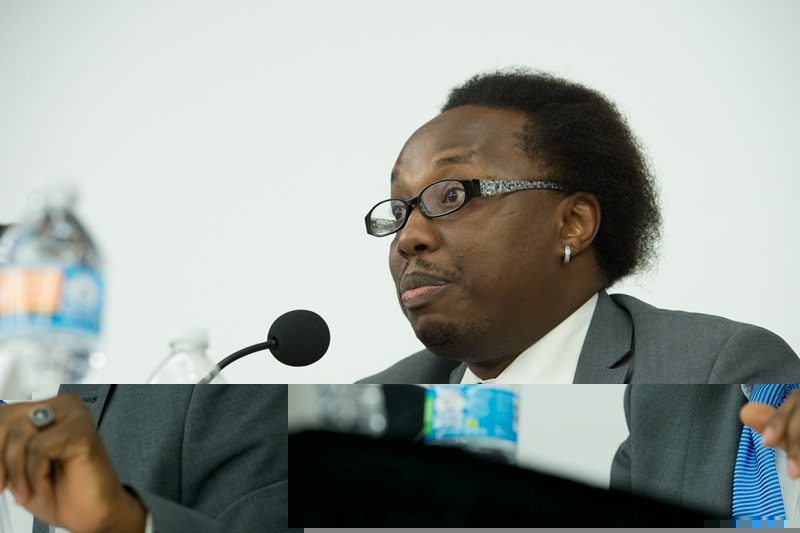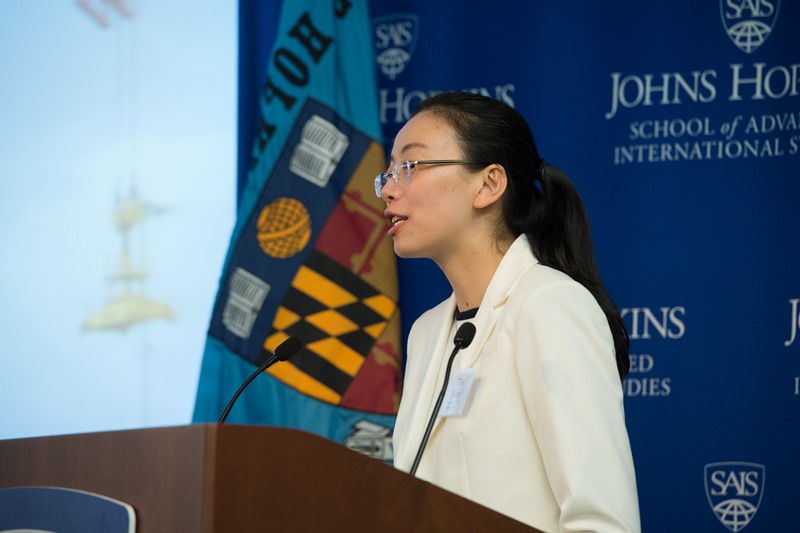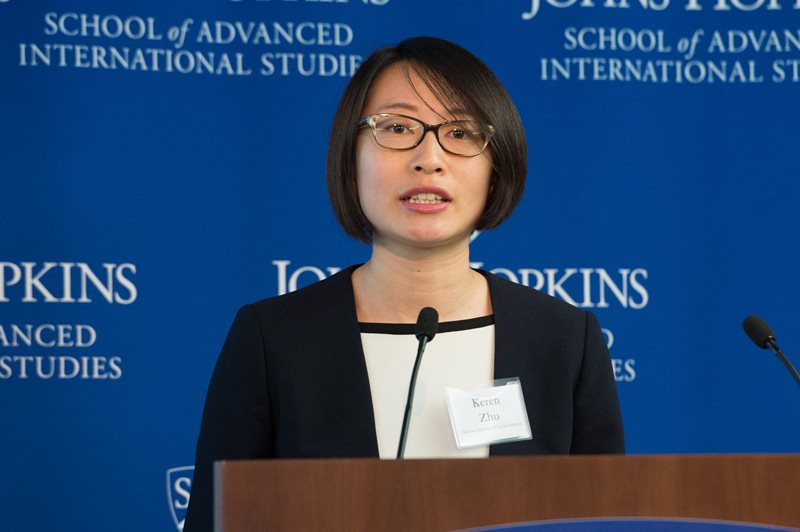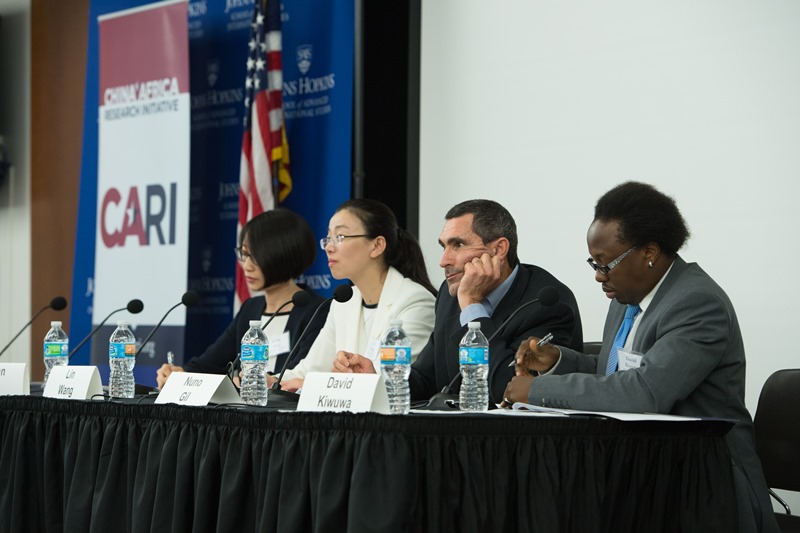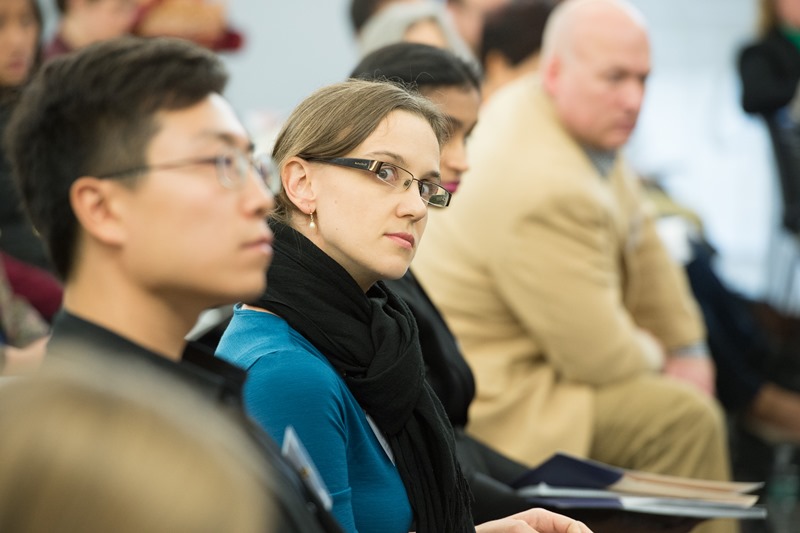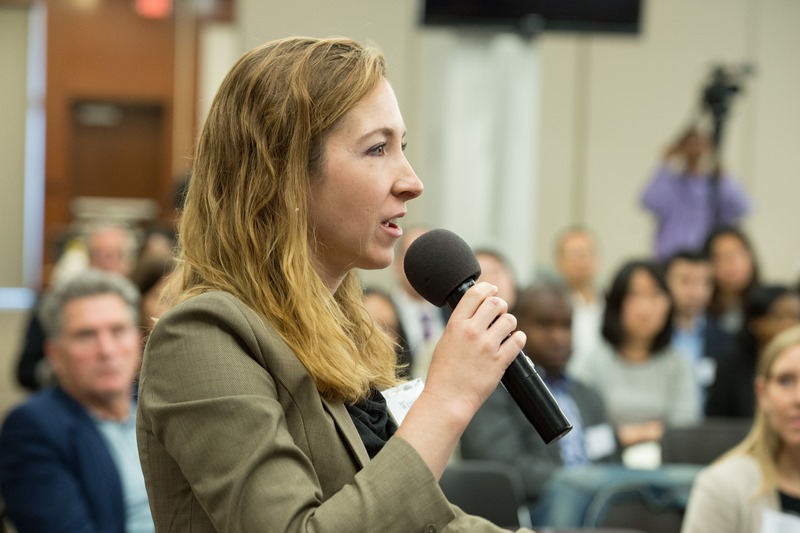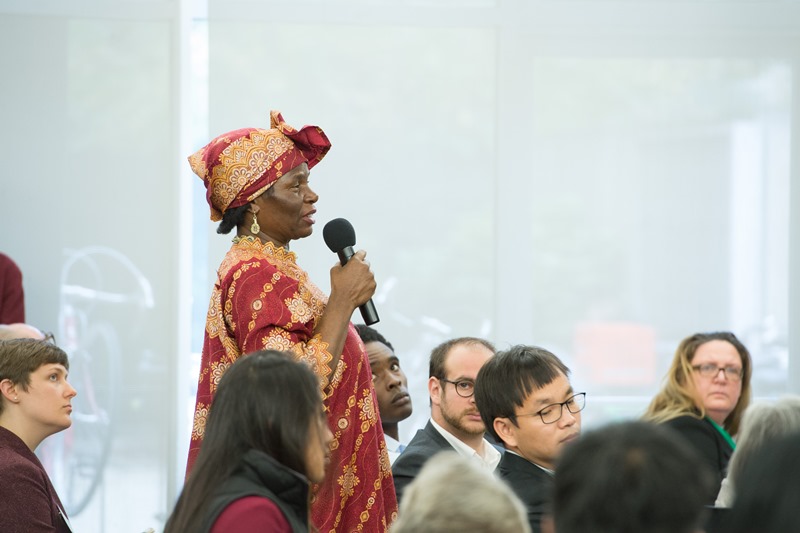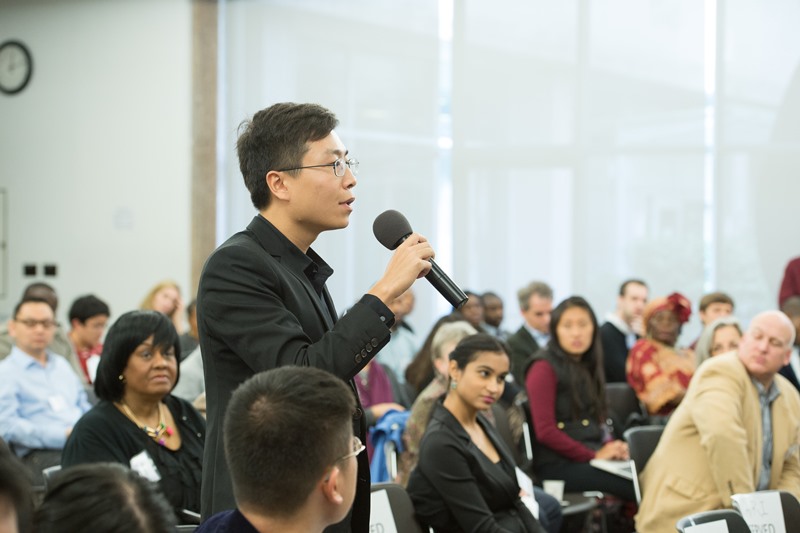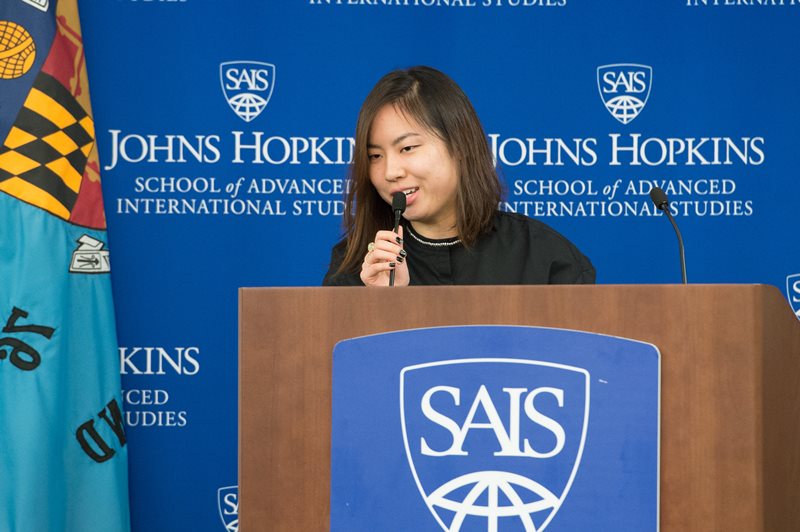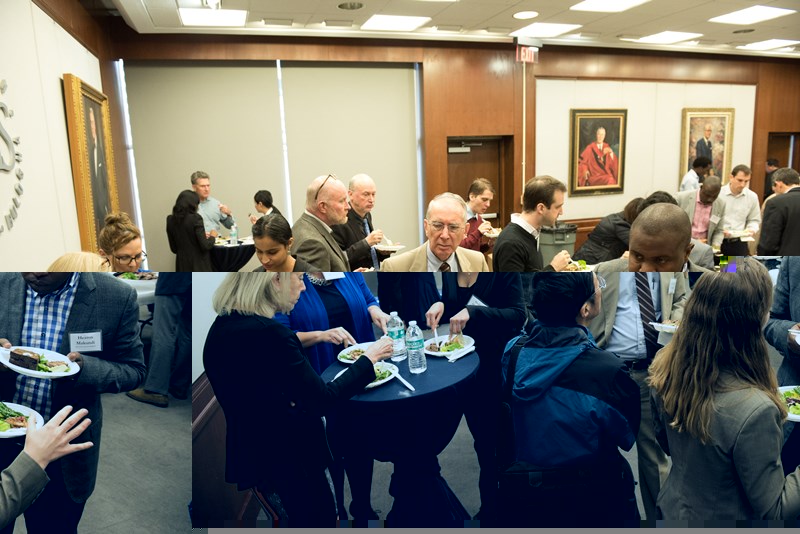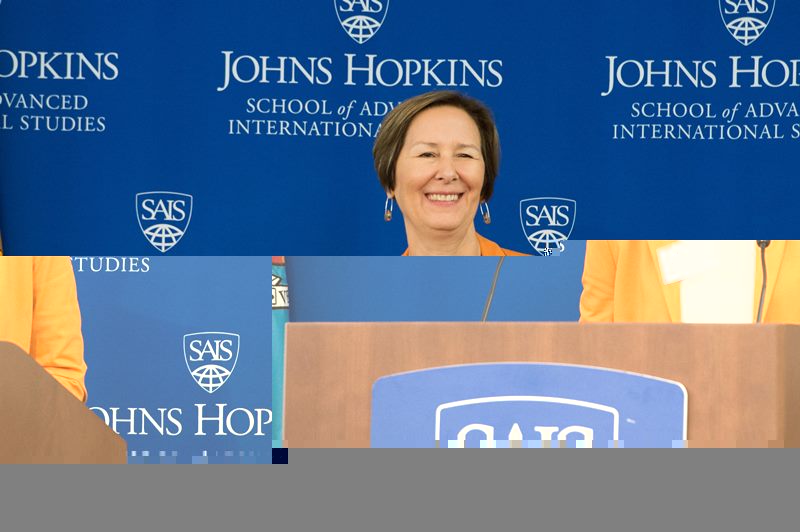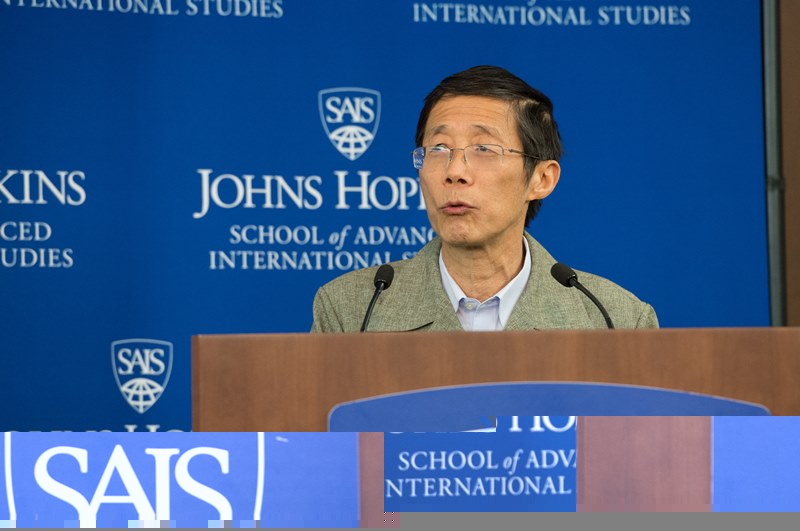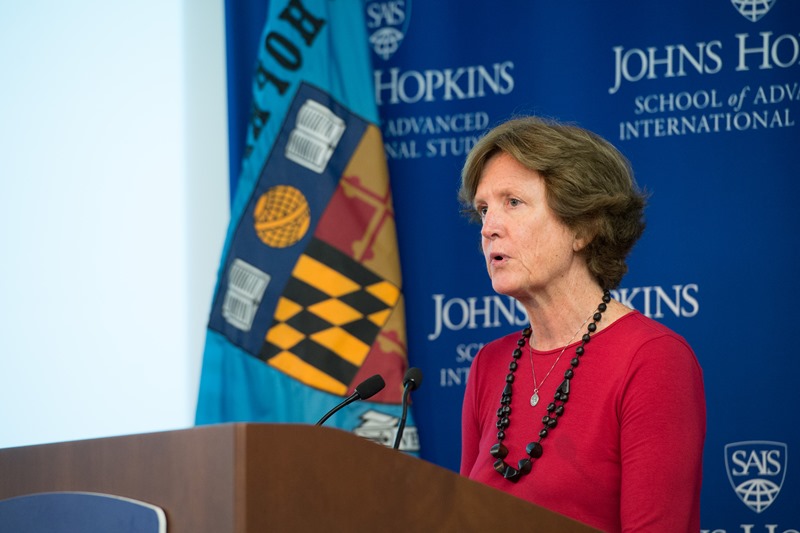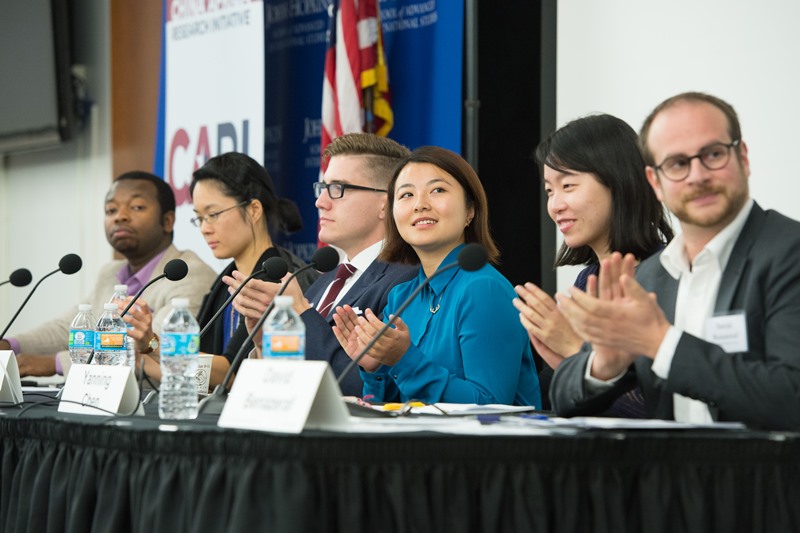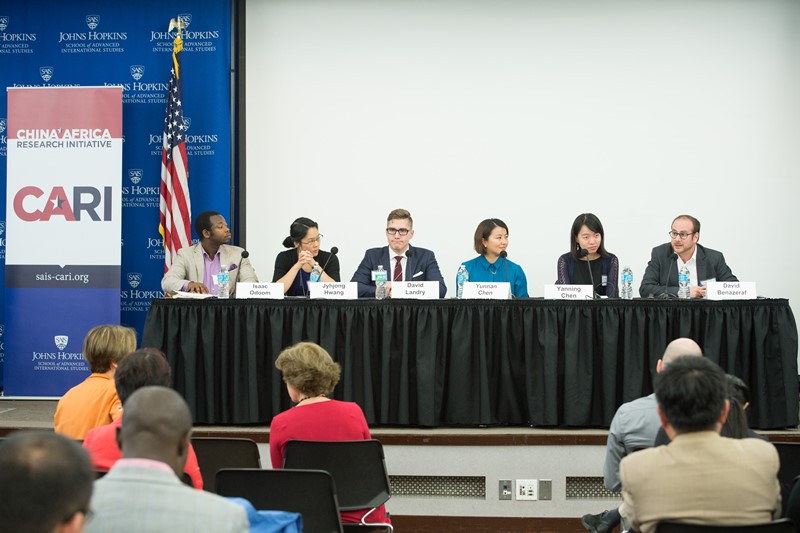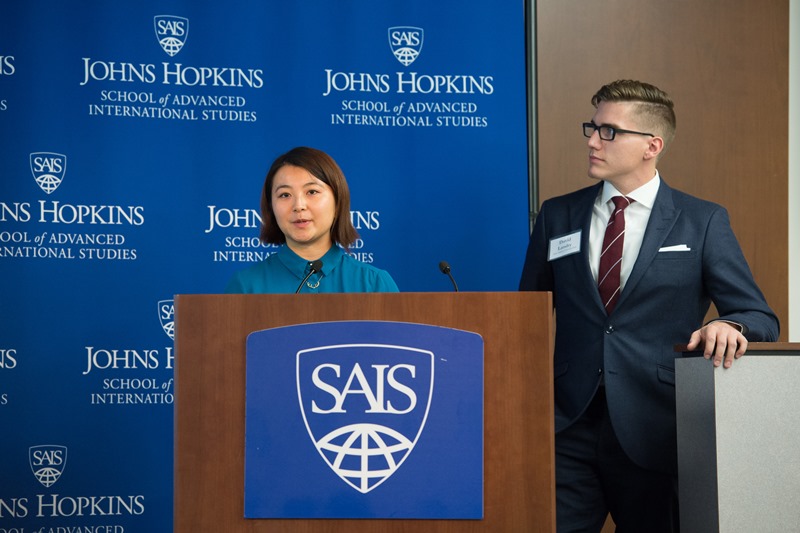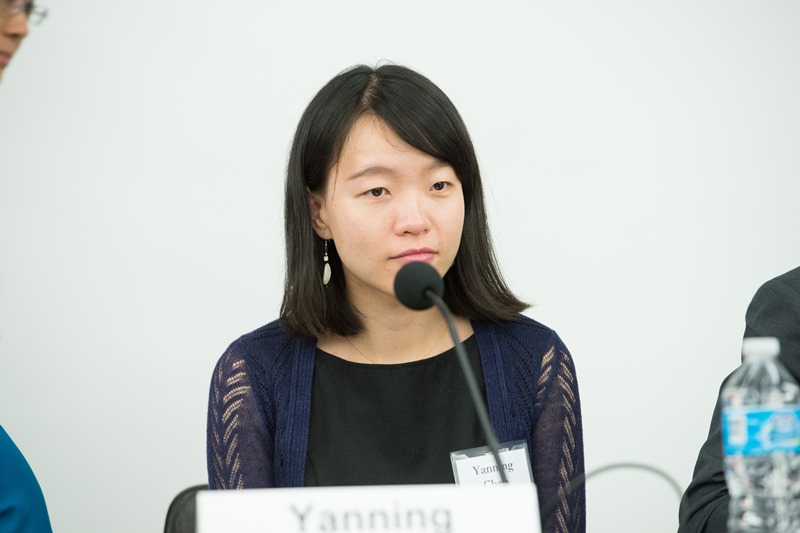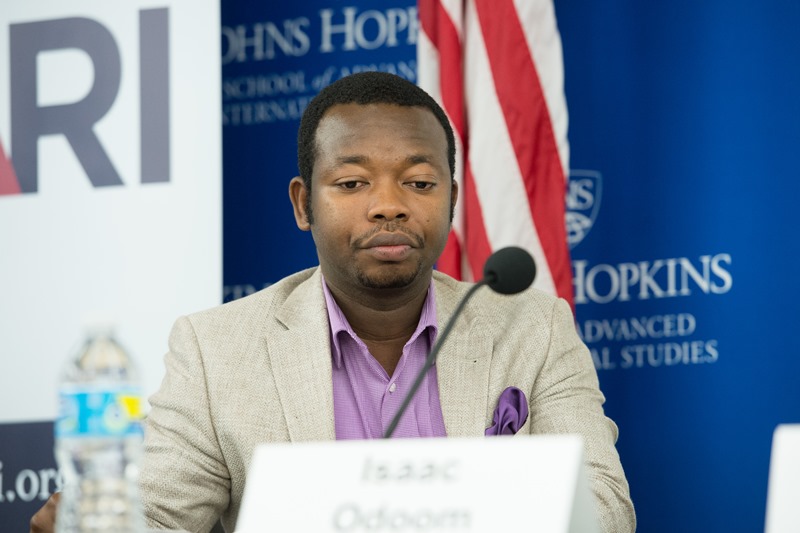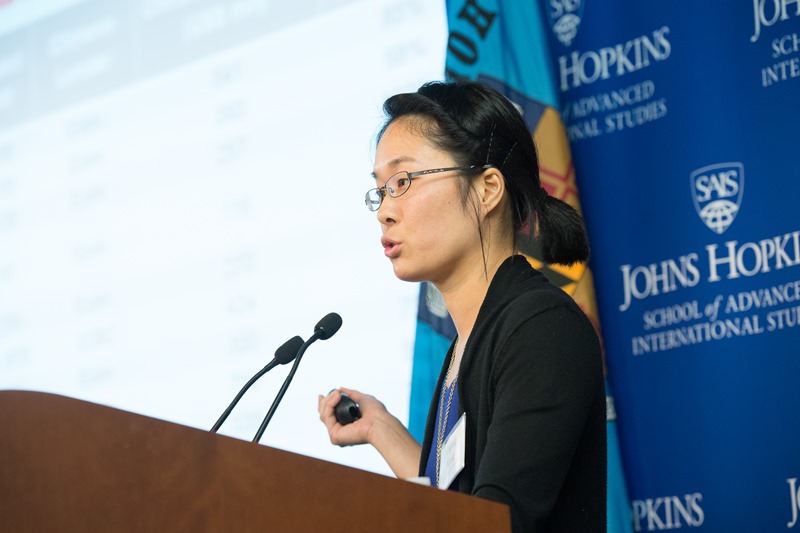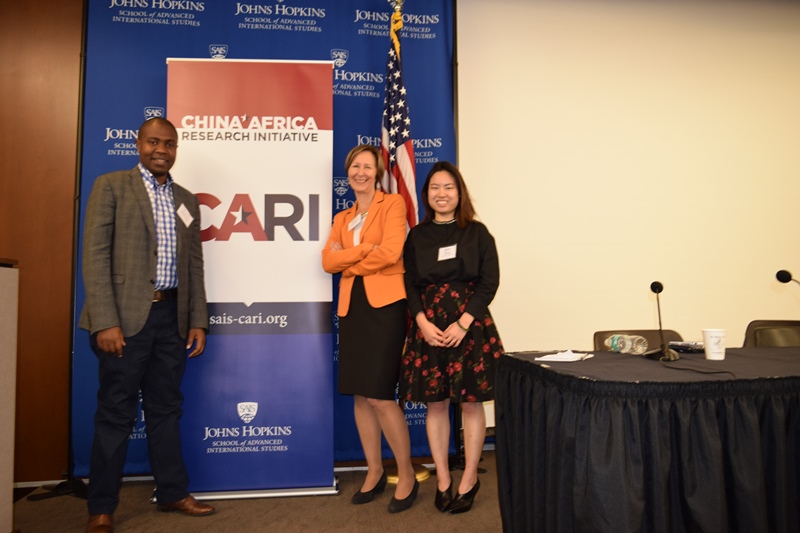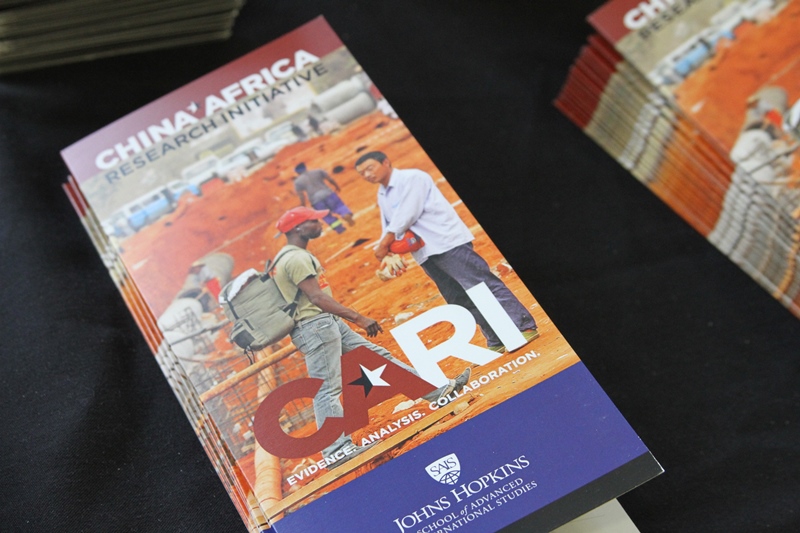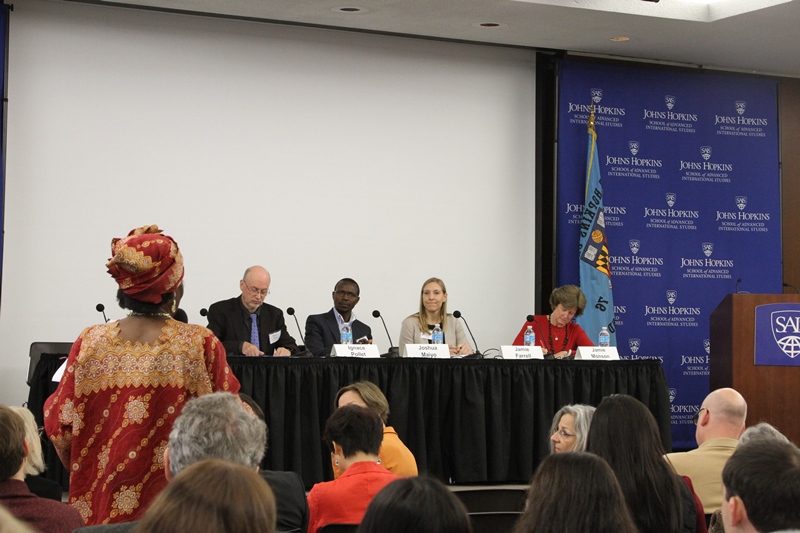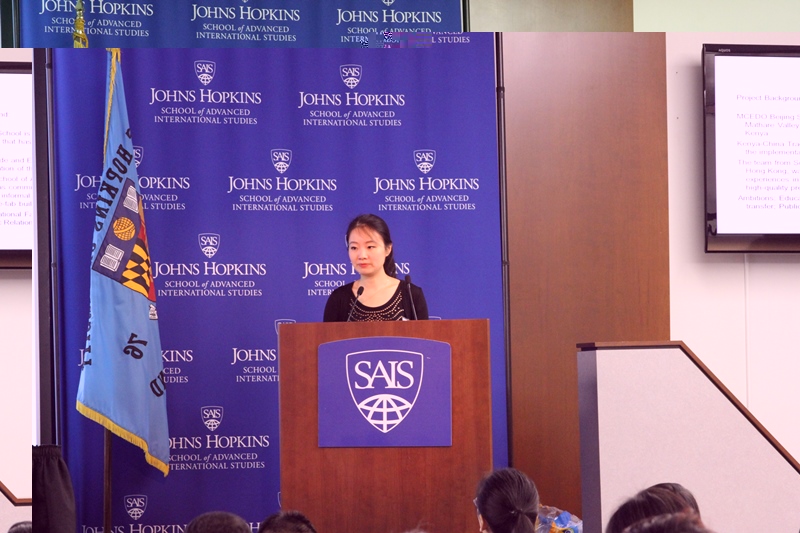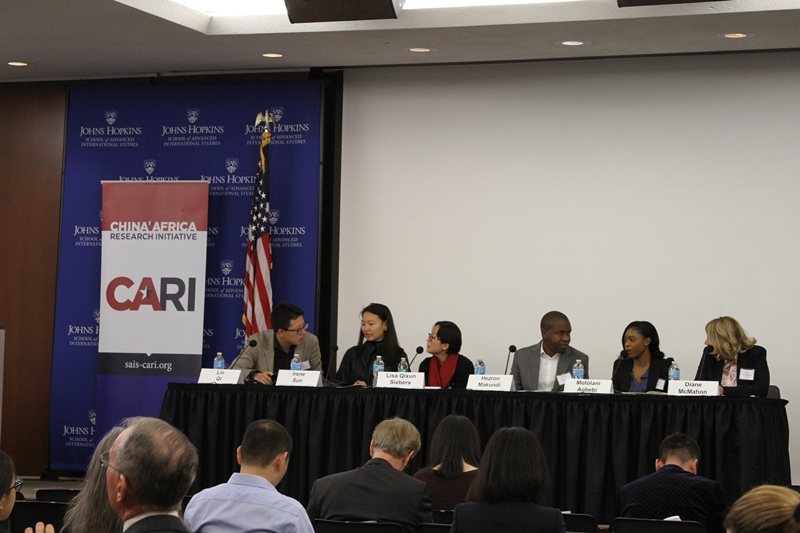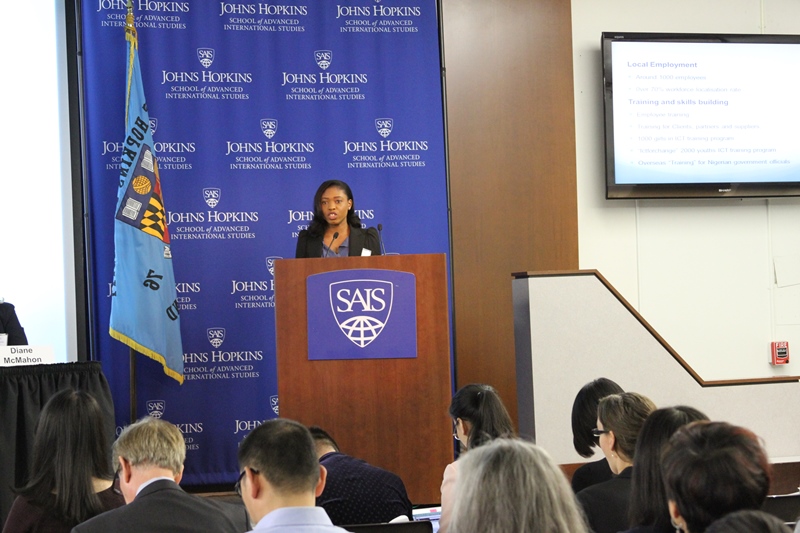ORIENT EXPRESS: CHINESE INFRASTRUCTURE ENGAGEMENT IN AFRICA
THE 3RD ANNUAL CHINA-AFRICA RESEARCH INITIATIVE (CARI) CONFERENCE, WAS HELD ON OCTOBER 13 & 14, 2016 AT THE JOHNS HOPKINS UNIVERSITY SCHOOL OF ADVANCED INTERNATIONAL STUDIES (SAIS) IN WASHINGTON DC.
This year’s theme was “Orient Express: Chinese Infrastructure Engagement in Africa,” and we were pleased to have Dr. Jamie Monson, Professor of History and Director of African Studies at Michigan State University, as our keynote speaker.
Abstracts and participant bios can be found here.
Video recordings are embedded below in the conference agenda.
Panelist PowerPoint presentations can be found, when available, when clicking on their presentations below.
Conference Summary
China’s infrastructure engagement in Africa is one of the most important aspects of China-Africa relations, but there are still considerable questions about the size, effectiveness, financing, and impact of such projects. SAIS-CARI held its third public conference on April 13-14, 2016 in Washington, D.C. at Johns Hopkins University’s School of Advanced International Studies (SAIS) in Kenney Auditorium (1740 Massachusetts Ave.). The theme of the conference was Orient Express: Chinese Infrastructure Engagement in Africa.
The goal was to achieve a better understanding of both the multiple sectors of Chinese infrastructure projects in Africa and their corresponding impacts on host African states. Papers examined the motives and modalities, trends, sectors, and impacts using a variety of methods from quantitative analysis to case studies. Vali Nasr, SAIS Dean, and Deborah Brautigam, SAIS-CARI Director, provided introductory remarks and Jamie Monson, Professor of History and Director of African Studies at Michigan State University delivered the keynote.
The first panel, Roads, Railroads, and Ports I, was chaired by chaired by Jamie Monson, Professor of History and Director of African Studies, Michigan State University. Jamie Farrell, of Johns Hopkins SAIS, compares how do Chinese contractors perform in Africa using evidence from World Bank projects. Based on the data analyzed, there is no statistically significant difference between the quality of work of Chinese firms and OECD country firms on World Bank contracts in the African transportation sector, won from 2000-2007 and completed by 2013. Josh Maiyo, of Webster University Leiden, used the Standard Gauge railway project in Kenya as a case study to track local narratives of Chinese infrastructure engagement. Finally, Ignace Pollet, of University of Leuven, Belgium, compared Chinese infrastructure with that of traditional donors in the Democratic Republic of Congo.
The second panel, Roads, Railroads, and Ports II, was chaired by David Kiwuwa, of The University of Nottingham Ningbo, China. Prof. Nuno Gil, from the University of Manchester's Alliance Manchester Business School, examined infrastructure projects in developing economies, comparing and contrasting China's approach with the World Bank in projects in Uganda and Nigeria. Wang Lin, of the China Business Network Research Institute, explored Chinese ports in Africa from Gwadar to Kribi. Finally, the Chinese Academy of Social Sciences's Keren Zhu used the Kribi deep sea port in Cameroon to asses skills transfer.
The second panel was followed by the keynote speech, in which Ambassador Shu Zhan, Research Fellow at the The Institute of African Studies at Zhejiang Normal University, introduced Jamie Monson, Professor of History and Director of African Studies, Michigan State University. Prof. Monson discussed the history of Chinese infrastructure engagement in Africa, from TAZARA onwards.
Panel 3 looked at Power, and was chaired by the International Energy Agency's David Benazeraf. Yanning Chen, Johns Hopkins SAIS, compared the Chinese Adama wind farm with the French Ashegoda wind farm in Ethiopia. Yunnan Chen and David Landry, two students from Johns Hopkins' SAIS, presented a study of Chinese and World Bank-financed hydropower projects in Cameroon. Jyhjong Hwang, Senior Research Assistant at SAIS-CARI, looked at Chinese engagement in African hydropower projects broadly. The last presentation had Prof. Isaac Odoom from the University of Alberta examined the labor politics and activism of Ghanaian workers at the Bui Dam in Ghana, specifically looking for African agency in China-Africa affairs.
The concluding panel for day one, covering Financing, was chaired by David Ehrhardt, Castalia Strategic Advisors. Wendy Leutert, a PhD candidate at Cornell University, presented on the shift for Chinese Companies and Public-Private Partnerships in Overseas Infrastructure Development, moving from contractors to stakeholders. Shakira Mustapha, of the Overseas Development Institute, analyzed the role of choice in the infrastructure projects for Kenya and Ethiopia. Ye Yuan of Sciences Po, analyzed decision mechanisms and the structure behind Chinese concessional loans to infrastructure in Africa. Youyi Zhang, a PhD student at Cornell University, closed the panel by looking at financing of Chinese Infrastructure in Africa: Concessional Loans, Public-Private Partnerships, and International Donors.
Day two's first panel explored Environment and Corporate Social Responsibility and was chaired by Prof. Jian Ni of The Johns Hopkins Carey Business School. Gbemiga Adeyemi, of the Federal University Oye-Ekiti, presented on occupational safety and hidden health costs among construction workers for Chinese construction companies in Lagos State. Lila Buckley, from the International Institute for Environment and Development, explored how Chinese businesses in African infrastructure make decisions on social and environmental compliance. Zhengli Huang, from the Chinese University of Hong Kong, uses a case study in Mathare Valley Nairobi to understand Chinese contractors and their social responsibilities. Finally, Dr. Bradley Parks, Executive Director at AidData and Research Faculty at the College of William and Mary, An Evaluation of the Impacts of Chinese Development Projects in Ecologically Sensitive Areas.
The last conference panel looked at Labor and Skills Transfer and was chaired by Diane McMahon, Vice President of International Government Affairs at Bechtel Corporation. Motolani Agbebi, from the University of Tampere, looked at Huawei's skills and technology transfer in Nigeria based on field research from the spring of 2016. Hezron Makundi, from the University of Leuven, presented on cooperation between China and Tanzania in ICT. Prof. Lisa Qixun Siebers of Nottingham Trent University, used Kenya, Zambia, and South Africa as case studies on infrastructure. Finally Irene Sun, from McKinsey & Company and Lin Qi, a former AVIC Project Manager, shared their findings on a case study of AVIC International's skills transfer programs in Kenya, bringing the conference to a close.
2016 SAIS-CARI CONFERENCE:
ORIENT EXPRESS: CHINESE INFRASTRUCTURE ENGAGEMENT IN AFRICA
Thursday, October 13, 2016
8:30 - 9:00 – Sign-in and coffee/breakfast
9:00 - 9:05 – Welcome: Vali Nasr, Johns Hopkins SAIS Dean
9:05 - 9:15 – Introduction: Deborah Brautigam, SAIS-CARI Director
9:15-10:45 – PANEL 1: ROADS, RAILROADS, and PORTS
Chair: Jamie Monson, Professor of History and Director of African Studies, Michigan State University
Panelists:
Jamie Farrell, Johns Hopkins SAIS How do Chinese Contractors Perform in Africa? Evidence from World Bank Projects.
Josh Maiyo, Webster University Leiden Tracking Local Narratives of Chinese Infrastructure Engagement in Kenya: A Case Study of the Standard Gauge Railway Project
Ignace Pollet, University of Leuven, Belgium The Road is Open: Comparing Chinese with Traditional Donors in the Democratic Republic of Congo
10:45 - 11:00 – Coffee break
11:00 - 12:30 – PANEL 2: ROADS, RAILROADS, AND PORTS II
Chair: David Kiwuwa, The University of Nottingham Ningbo, China
Panelists:
Wang Lin, China Business Network Research Institute
From Gwadar to Kribi: Chinese Engagement in the Development of Africa's PortsKeren Zhu, Chinese Academy of Social Sciences
Skills Transfer in Chinese Infrastructure in Africa: A Case Study of the Kribi Deep Sea Port in Cameroon
12:30 - 1:30 – Lunch and Keynote Speech:
Jamie Monson, Professor of History and Director of African Studies, Michigan State University (Introduced by Ambassador Shu Zhan, Research Fellow, The Institute of African Studies at Zhejiang Normal University)
1:30 - 3:00 – PANEL 3: POWER
Chair: David Benazeraf, International Energy Agency
Panelists:
Yanning Chen, Johns Hopkins SAIS
A Comparison of the Chinese Adama Wind Farm with the French Ashegoda Wind Farm in EthiopiaYunnan Chen and David Landry, Johns Hopkins SAIS
Capturing the Rains: A Study of Chinese and World Bank-Financed Hydropower Projects in CameroonJyhjong Hwang, SAIS-CARI
Great Walls over African Rivers: Chinese Engagement in African Hydropower ProjectsIsaac Odoom, University of Alberta
Unpacking African Agency: Examining the Labor Politics and Activism of Ghanaian Workers at the Bui Dam in Ghana
3:00 - 3:30 – Coffee Break
3:30 - 5:00 – PANEL 4: FINANCING
Chair: David Ehrhardt, Castalia Strategic Advisors
Panelists:
Wendy Leutert, Cornell University
From Contractors to Stakeholders? Chinese Companies and Public-Private Partnerships in Overseas Infrastructure Development.Youyi Zhang, Cornell University
Financing of Chinese Infrastructure in Africa: Concessional Loans, Public-Private Partnerships, and International Donors
5:00 - 6:00 – Public Reception
Friday, October 14, 2016
8:30 - 9:00 – Coffee/breakfast
9:15 - 10:45 – PANEL 5: ENVIRONMENT AND CORPORATE SOCIAL RESPONSIBILITY
Chair: Jian Ni, The Johns Hopkins Carey Business School
Panelists:
Gbemiga Adeyemi, Federal University Oye-Ekiti, Nigeria
Occupational Safety and Hidden Health Costs Among Construction Workers: Analysis of Chinese Construction Companies in Lagos StateBradley Parks, AidData, College of William and Mary
An Evaluation of the Impacts of Chinese Development Projects in Ecologically Sensitive Areas
10:45 - 11:00 – Coffee break
11:00 - 12:30 – PANEL 6: LABOR AND SKILLS TRANSFER
Panelists:
Hezron Makundi, University of Leuven, Belgium
Cooperation Between China and Tanzania in ICTLisa Qixun Siebers, Nottingham Trent University
Chinese Infrastructure Engagement in Eastern and Southern Africa: Lessons from Kenya, Zambia, and South AfricaIrene Sun, McKinsey & Company, and Lin Qi, former AVIC Project Manager
Creating a Market for Skills Transfer: A Case Study of AVIC International's Skills Transfer Programs in Kenya
12:30 - 1:30 – Lunch and Summing Up: Prof. Deborah Brautigam, SAIS-CARI Director

